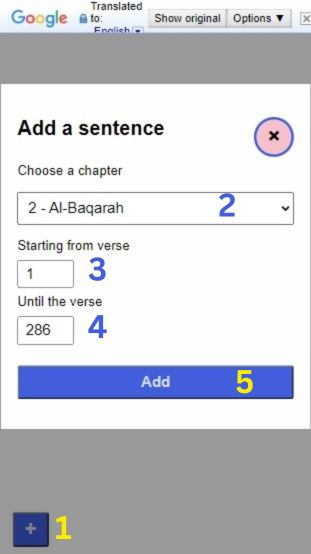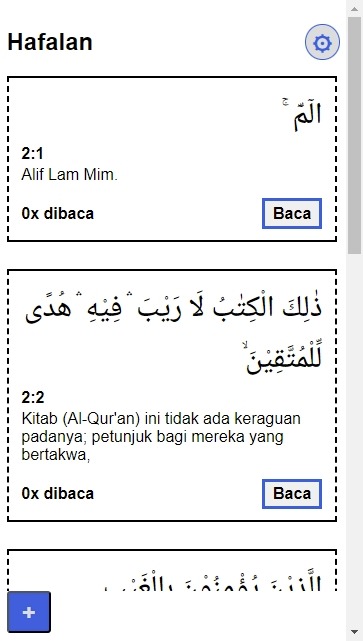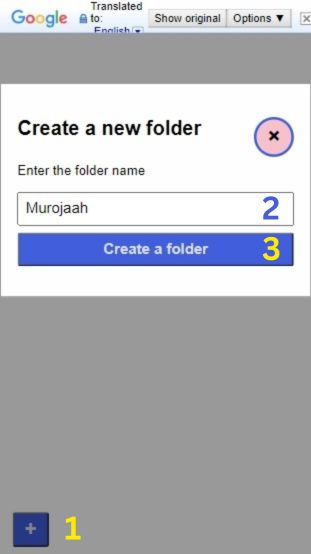
The easiest way to memorize Quran
Posted date 2024-03-23
Memorizing the Quran is considered one of the greatest deeds in Islam, but many people mistakenly believe that only certain individuals are capable of achieving it.
In fact, anyone can memorize the Quran with patience and persistence. Through the process, each verse can easily become ingrained in our memory.
In addition to the benefits in the afterlife, memorizing the Quran also has practical benefits for everyday life, as follows:
-
Developing your patience
Rushing doesn’t aid in the process of memorizing the Quran. Instead, taking it slowly allows us to memorize each verse in detail, which inadvertently helps in developing patience.
Even as you memorize verses of the Quran, you should nurture your memory to ensure the verse stick in your mind, thereby cultivating your patience.
-
Learn the stories of previous people.
The Quran contains numerous stories from which we can learn valuable lessons, such as the patience displayed by Prophet Yusuf in dealing with his brothers, and the steadfastness of Prophet Ibrahim when he faced being thrown into the fire, among others.
-
Eliminate sadness.
Everyone experiences sadness at some point; sometimes we just need to strengthen our hearts to face it. Steadfastness can be gained by learning from the experiences of others in dealing with their sadness, like the steadfastness shown by the mother of Prophet Moses, who had to place her baby Moses in a basket and set him adrift in the river.
-
Passionate about praying.
By reading letters that change with every prayer, not only will we avoid boredom, but we will also experience dual enthusiasms: enthusiasm for prayer and enthusiasm for memorizing the Quran.
-
Character Development.
The Quran contains ethical and moral guidance capable of shaping an individual’s character. Memorizing these teachings can facilitate living a life guided by virtuous principles.
-
Enhanced Mental and Cognitive Abilities.
Memorizing the Quran involves exercises in memory and cognition that can enhance one’s memory and concentration skills.
-
Fostering a Positive Personality.
The Quran imparts positive values such as patience, honesty, and compassion. Memorization and practice of its teachings can contribute to the cultivation of a more positive personality.
-
Improved Social Aptitude.
Individuals who memorize the Quran often exhibit high social values, including empathy, tolerance, and a positive demeanor towards others.
Memorizing the Quran is not merely an act of committing sacred texts to memory, it is also a spiritual journey and a profound process of character development. These benefits can enrich one’s daily life with meaning and Islamic values.
Easy Steps to Memorize the Quran
-
Utilize Voice or Video Recordings:
The Quran, originating from Allah, the God of the universe, was conveyed to the angel Gabriel, then to Prophet Muhammad and his companions, and has been memorized by countless individuals throughout history. It can be more manageable to follow along with recordings of Quran recitations rather than solely relying on self-reading. Additionally, for those unfamiliar with the science of Quranic recitation, such as tajweed, it’s advantageous to follow the memorization of others.
However, exercise caution in selecting whom to follow for memorization. It’s essential to vet the background of individuals to ensure their proficiency and knowledge of the Quran. A reliable option is to choose someone who has served as an Imam at the Grand Mosque, as they have been endorsed by the state and esteemed scholars in the holy land for their expertise.
-
Listen to the Quran Regularly:
Consistent listening to the Quran aids in memorization by familiarizing oneself with the pronunciation and intonation of its verses.
-
Begin with One Verse Daily:
Since memory capacities vary among individuals, it’s advisable to commence Quranic memorization gradually, such as memorizing one verse per day. Over time, one may progress to memorizing a page or more per day.
-
Comprehend the Meaning of Quranic Verses:
Understanding the meanings of Quranic verses is crucial as they hold valuable lessons. Delving into interpretations or explanations provided by scholars helps internalize the lessons imparted by these verses.
Moreover, understanding the context or story behind a verse can aid in retention, as sometimes the narrative is more memorable than the verse itself. Hence, learning the meanings of Quranic verses facilitates better memorization.
Difficulty in Memorizing the Quran
Some common challenges encountered while memorizing the Quran include:
-
Difficulty in Allocating Time
Despite having 24 hours in a day, the average person typically spends 8 hours working, 8 hours sleeping, leaving around 8 hours for other activities. Although this allows for approximately 4 hours for Quran memorization, only a few manage to utilize this time effectively.
-
Lack of Discipline
With daily routines that vary and sometimes unsupportive environments, individuals struggle to maintain discipline in memorizing and revising verses.
-
Forgetting Memorized Verses
-
Forgetting Verses Requiring Revision (Murojaah)
Quran Memorization Application
To address these challenges, we have developed an application aimed at facilitating Quran memorization. Here, we present the simplest method to memorize the Quran using our application.
1. Listen to Recitations
Begin by listening to Quranic recitations or videos regularly to familiarize yourself with correct pronunciation.
2. Create a New Folder
Visit our application at memverses.ibinhusen.my.id and create a new folder for Quranic readings:
- Click the + button below.
- Name the folder Memorize.
- Click the Create folder button.

3. Add Verses for Memorization
Navigate to the created folder, click on it, and add the verses you intend to memorize:
- Click the + button below.
- Enter the chapter.
- Enter the starting verse number.
- Enter the ending verse number.
- Click the Add button.

4. Set Memorization Targets
Before starting, configure your memorization targets:
- Press the settings button at the top right.
- Specify the number of verses to memorize under Show as many verses (1 verse is recommended).
- Set the daily Quran reading target under Target reading per day (recommended: 70 times).
- Click the Apply button.

The interface will resemble the image below:

Now, simply read the displayed verse and click the Read button. Consistent practice will lead to memorizing one verse before reading it for the 70th time.
Once confident, proceed to the next verse while revising the previous one. Repeat this process sequentially.
5. Memorize with Revision (Murojaah)
To incorporate revision, create a separate folder named Murojaah:
- Return to the main page.
- Click the + button below.
- Name the folder Murojaah.
- Click the Create folder button.

Then, within the Memorization folder, move the memorized verses to the Murojaah folder using the “Move to” button.

Follow and repeat the above method slowly and with discipline. You will memorize each verse little by little as time goes by. Recite the verses you have memorized during prayer to help them become more deeply embedded in your memory.
By integrating Quran recitation into daily prayers, this application eliminates the need to recall verses during prayer, as it automatically prompts the recited verses for each prayer.
These steps are based on personal experience, and you may find a method better suited to your memorization capabilities. Additionally, we provide a list of Quranic recitations for further assistance.
- Surah 12 - Yusuf - by Ismail Annuri
- Surah 14 - Ibrahim - by Ismail Annuri
- Surah 18 - Al Kahf - by Syekh Abdurrahman Assudais
- Surah 19 - Maryam - by Ismail Annuri
- Surah 19 - Maryam (verses 41 - 98) - by Muayyid al Mazen
- Surah 20 - Tha ha - by Ismail Annuri
- Surah 23 - Al Mu’minun - by Ismail Annuri
- Surah 58 - Al Mujadilah - by Fahad Aziz Niazi *Note on verse 9
Thank you for considering our approach to Quran memorization. We hope it enriches your understanding. Looking forward to sharing more insights in our next article.